Unlocking True Wealth: Why Freedom—Not Just Finances—Should Guide Your Financial Plan
Unlocking True Wealth: Why Freedom—Not Just Finances—Should Guide Your Financial Plan
When you hear the word “wealth,” what comes to mind? A specific dollar amount in your investment accounts? The size of your home? Your net worth statement?
For too many of us, wealth has become synonymous with financial metrics and material possessions. But at Forefront Wealth Partners, we’ve observed something surprising: some clients with the most impressive balance sheets are still searching for something more, while others with modest portfolios experience profound satisfaction and freedom in their lives.
The difference? Their definition of wealth.
The True Meaning of Wealth: Beyond the Numbers
True wealth isn’t measured in dollars and cents—it’s measured in freedom. Freedom to make choices. Freedom to spend your time purposefully. Freedom from financial anxiety. And ultimately, the freedom to live a life aligned with your deepest values.
Consider these two scenarios:
Scenario A: A high-powered executive earning $500,000 annually who works 70-hour weeks, rarely sees her family, and feels trapped by golden handcuffs and lifestyle inflation.
Scenario B: A teacher who earns $85,000 annually, works reasonable hours with summers off, has created passive income streams, and enjoys the flexibility to pursue passion projects and travel regularly.
Which person is wealthier? From a purely financial perspective, the executive wins. But when we reframe wealth as freedom, the picture changes dramatically.

The Four Dimensions of Financial Freedom
1. Financial Stability
The foundation of true wealth is having enough passive income from investments, savings, and other sources to cover your essential living expenses. This doesn’t necessarily mean complete retirement—it means creating financial stability that isn’t dependent on trading your time for money in ways that don’t fulfill you.
As Warren Buffett famously said, “If you don’t find a way to make money while you sleep, you will work until you die.”
2. Time Freedom
Time is the ultimate non-renewable resource. No matter how wealthy you become, you can’t buy more of it—you can only change how you use it.
Financial freedom gives you ownership of your time. It means saying “yes” to opportunities that energize you and “no” to obligations that drain you. It means designing your days around what matters most to you, whether family, creative pursuits, travel, community service, or simply having space to breathe.
3. Purpose and Fulfillment
Money without meaning creates empty wealth. True wealth aligns your financial resources with your purpose, allowing you to:
– Support causes you care about
– Invest in relationships that matter
– Pursue work that feels meaningful (whether paid or unpaid)
– Create a positive impact in ways uniquely suited to your gifts
When your financial decisions support a life of purpose, money becomes a powerful tool rather than an end goal.
4. Peace of Mind
Financial anxiety is the opposite of wealth. You might have substantial assets, but if you’re constantly worried about market volatility, running out of money, or protecting what you have, you’re not experiencing true wealth.
Peace of mind comes from:
– Having appropriate protections in place
– Building resilience against financial setbacks
– Creating sustainable financial habits
– Maintaining perspective about what “enough” looks like for you
Reframing Your Financial Plan Around Freedom

To create a freedom-first financial plan, start by asking yourself these questions:
– What does freedom look like for me? Be specific about how you’d spend your time, energy, and resources if you had complete choice.
– What are my non-negotiable expenses? Distinguish between what you truly need for contentment versus what society says you should want.
– Where am I trading freedom for finances? Identify areas where you’re sacrificing time, health, relationships, or purpose for financial gain.
– What trade-offs am I willing to make? Determine what financial sacrifices might increase your freedom (like downsizing your home to reduce financial pressure).
– What is my “enough” number? Calculate how much passive income would fund your essential expenses plus meaningful discretionary spending
Common Pitfalls on the Path to True Wealth
The Income Trap
Many professionals fall into the trap of constantly chasing higher income without considering the cost of freedom. Each salary increase often comes with increased responsibilities, stress, and time commitments. Before pursuing that promotion or job change, ask, “Will this increase or decrease my overall freedom?”
The Prestige Purchase Problem
We’re constantly bombarded with marketing messages equating luxury purchases with success. But many prestige purchases decrease freedom by:
– Creating new maintenance obligations
– Increasing financial pressure
– Requiring more work to sustain
– Tying up capital that could generate passive income
The “Someday” Syndrome
“I’ll focus on freedom after I hit [financial milestone]” is a dangerous mindset. Too often, that someday never arrives as goalposts continuously shift. True wealth requires balancing present fulfillment with future security.
Creating Your Freedom-First Financial Plan

Here’s how to start building a financial plan that prioritizes freedom:
1. Clarify Your Freedom Vision
Before running numbers, clearly define what freedom means to you. Create a detailed vision of your ideal day, week, and year if money were no object. This vision will become your compass for financial decisions.
2. Calculate Your Freedom Number
Determine how much monthly passive income would fund your essential expenses plus meaningful discretionary spending. This becomes your primary financial target—not an arbitrary net worth figure.
3. Audit Your Current Freedom Level
Honestly assess where you currently stand in each of the four freedom dimensions. Where are you thriving? Where are you constrained? This establishes your baseline.
4. Identify Quick Freedom Wins
Look for immediate changes that could increase your freedom without requiring major financial shifts:
– Negotiating remote work flexibility
– Automating financial tasks that cause stress
– Eliminating commitments that don’t align with your values
– Restructuring debt to reduce monthly obligations
5. Design Your Freedom Acceleration Strategy
Create a comprehensive plan to build passive income streams through:
– Strategic investing for cash flow
– Developing semi-passive business interests
– Maximizing tax efficiency
– Reducing unnecessary expenses that don’t contribute to your freedom
How a Financial Advisor Can Help
At Forefront Wealth Partners, we specialize in freedom-based financial planning. Our advisors can help you:
– Clarify your personal definition of freedom and wealth
– Calculate specific financial targets that will fund your freedom vision
– Identify blind spots in your current approach
– Design an investment strategy aligned with your freedom goals
– Create accountability for making freedom-enhancing financial decisions
The Path Forward: Your Next Steps
1. Reflect deeply on what true wealth means to you. Write down your definition of freedom across financial, time, purpose, and peace of mind dimensions.
2. Audit your financial decisions from the past year. Which ones increased your freedom? Which ones decreased it?
3. Identify one change you could make this month to move you toward greater freedom without requiring a significant financial shift.
4. Consider whether your current financial plan is truly designed to maximize freedom—or just to maximize numbers on a statement.
5. Reach out for a freedom-focused financial consultation if you’re ready to align your finances with what truly matters to you.
Remember, the ultimate measure of wealth isn’t what you own—it’s the freedom you experience. When your financial plan prioritizes freedom over finances, you discover that true wealth was within reach all along.
Ready to redefine wealth on your own terms? Start your freedom journey with Forefront Wealth Partners today.
Investment advisory services provided through Forefront Wealth Partners. Investing in securities involves risks, including the potential for loss of principal. There is no guarantee that any investment plan or strategy will be successful.
This article was generated with the assistance of artificial intelligence and subsequently reviewed and edited by a human financial advisor to ensure accuracy and relevance. While AI can help synthesize information and generate content, it does not replace the expertise and judgment of a qualified financial professional.





